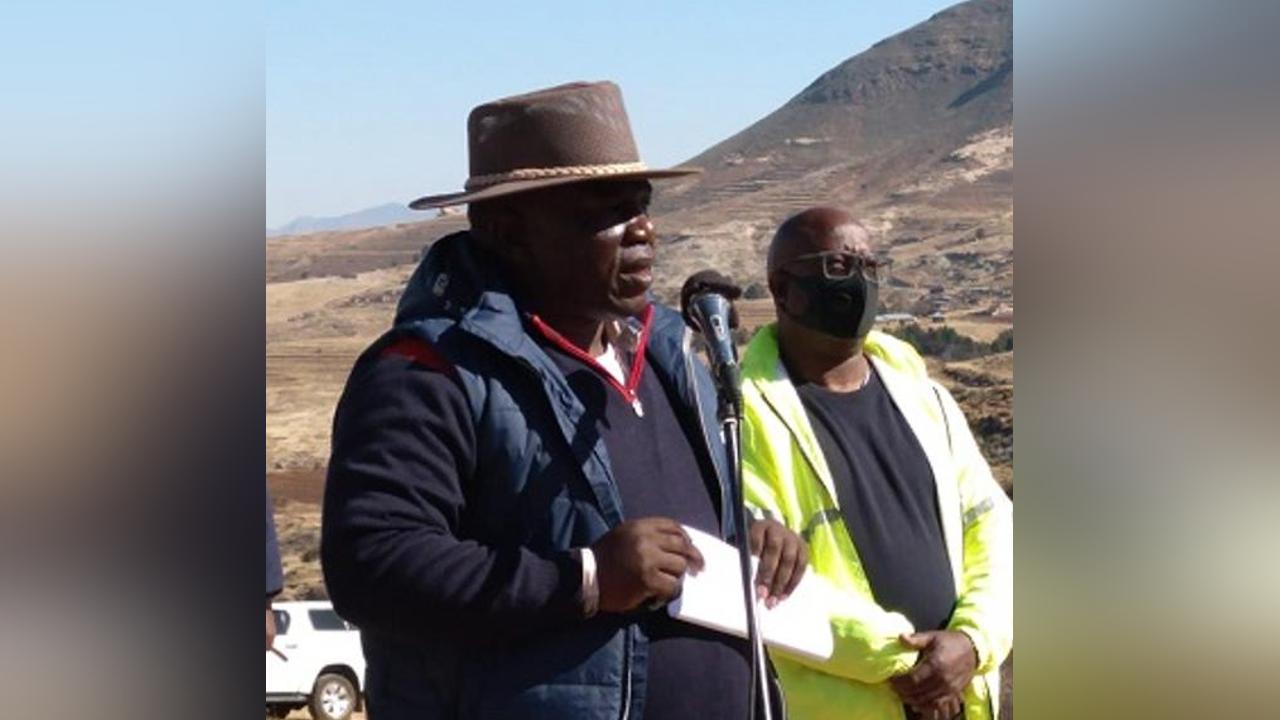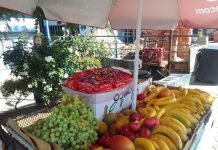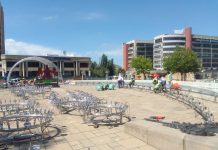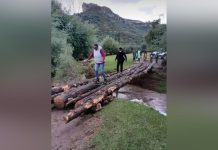Africa-Press – Lesotho. Despite the United Nations (UN) General Assembly of 2010’s resolve that access to safe and clean drinking water and sanitation are human rights, there are some places in Lesotho which these
human rights are not enjoyed, owing to their absence and compromised quality. In response to this challenge, on Wednesday the Deputy Minister of Water Hon.
Lepota Sekola launched the supply of rural water through solar pumping system and toilet building projects in villages within the Qomo-Qomong G02 council in Quthing.
The over M1,1 million project will see 168 families having access to running water and toilets. Also, on the same day the Deputy Minister of Water launched the same project at Tosing, Leqheqaneng in Quthing district.
Lepota said vulnerable families will have toilets built for them. The committee member for Tosing, speaking at the sod turning ceremony said it has been a long
wait for the provision of running water and toilets for their communities. He also said this will also preserve their “dignity” when they respond to nature.
Sekola further said recipients will respond with ease to Covid-19 safety protocols, which amongst others people are encouraged to maintain hygiene and wash their hands regularly with running
water. For his part, the Principal Chief of Quthing Chief Seeiso Nkuebe who was present to witness the two events expressed joy and congratulated his subjects.
“Water is life and people [lives] are safe with clean access to water,” he noted. He also urged contractors to observe Labor Regulations concerning the payment of wages and asked them to do away with the practice of shortchanging their workers.
Informative
Newspaper visited the Qomo-Qomong G02 council in the rural outskirts of Quthing district and learned of the woes of lack of latrines in most of the families as well as lack of access to running water in the
surrounding villages of Majoe-Mats’o, Maphepheng, Ha-Mojakhomo and Maheising. One villager of Ha-Mojakhomo, ‘Mats’oarelo Mojakhomo said they draw water from unprotected wells, a practice which she
said had been going on for a “very” long time as their village had never had a tap. “We drink dirty water,” said Mojakhomo. She went on to mention that dogs are sometimes
thrown in the wells. Of the other challenges which she said had confronted their village, is lack of latrines. Mojakhomo said most of the families do not have toilet facilities.
Asked what happens when nature calls, she said they relieve themselves in the bushes. She however highlighted that there are spots designated for women and men in the bushes.
Meanwhile, in 2012 the World Health Organization (WHO) said for every US$1 equivalent of M16.58 invested in sanitation, there is a return of US$5.50 about M91.19 in lower health costs, an
increased productivity and less rate of premature deaths. The 2007’s Lesotho Water and Sanitation Policy was the government’s response to the challenges of water and sanitation.
It is also in alliance with the international treaties and conventions which Lesotho is party to such as Agenda 21 whose Chapter 18 notes the role of water as a
“social, economic and life-sustaining” good. Sekola has, since last month, embarked on a
crusade to launch solar pumping system water and toilets building for vulnerable families. Similar projects have been launched in places such as Rothe, Kolonyama, Ha-Tjeka and Qacha’s Nek.
He said he will be embarking on this campaign until September, which he believes that about M40 million allocated for these projects will have run out.
For More News And Analysis About Lesotho Follow Africa-Press






